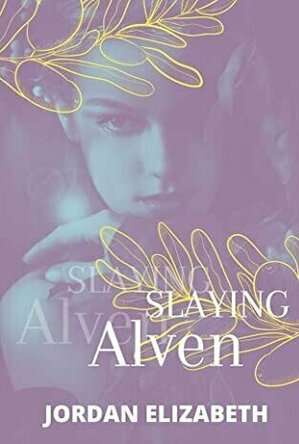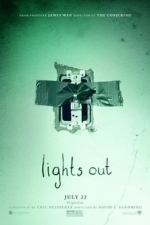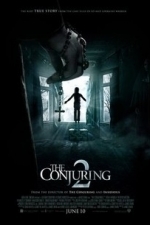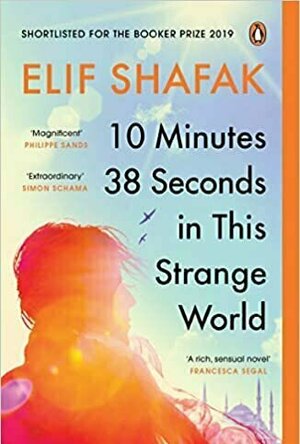Hazel (1853 KP) rated Slaying Alven in Books
Mar 29, 2020
There are several key characters in the story. Femmitie is about to finish high school and has just got her first boyfriend, Max. Tanneke, who witnessed Vader's death, has not spoken a word since. Sitske is growing up to be a strong, independent girl. Their mother, Catharina has remarried to a man named Xie with whom they have a son, Harvey. And then there is the Wittewijven ...
According to Dutch mythology, a Wittewijven was a wise woman or herbalist who took care of people's physical and mental ailments. When a Wittewijven died, their spirit remained on earth as "elven" beings, helping or hindering the people they met. The Wittewijven in this story, Wit for short, had turned to dark magic before her death hundreds of years ago. She is responsible for Vader's death and now she wants to destroy the rest of the family.
The story takes place between modern-day America and a world made for the Wittewijven, which can only be accessed by touching the words of a specific book. Over the years, Wit has trapped many people in her world and now the Van Nuys' family are her next targets. The only way Wit can be stopped is to be killed by a descendent, which, as it transpires, the Van Nuys are.
Jordan Elizabeth brings a new subject to the fantasy world in the form of the Wittewijven. Although the mythological character has featured in Dutch literature of the past, the legends are virtually unknown in the wider world.
Although the key characters are in their teens,Slaying Alven is more suited to mature readers due to some of the subjects implied. Overall, it is one of Jordan Elizabeth's best novels.
Gareth von Kallenbach (980 KP) rated Lights Out (2016) in Movies
Aug 6, 2019
In Lights Out audiences bear witness to this fear and are confronted with how this fear becomes a reality for one family. Rebecca (Teresa Palmer) is trying to make a life of her own after becoming estranged from her family. When her brother begins to experience the same problems at home that had plagued her as a child, she is brought back into the center of chaos. All of the fears return and she must save her family from a dark spirit that has attached itself to her mother before it consumes them all.
The film itself offers the ability for audiences to explore some of their earliest fears which had them leaving a light on or plugging in a night light in their rooms in order to feel safe. The film is inventive in its approach and storytelling, but I felt as though there was more to be offered with respect to the villain and relationships between the characters. Greater depth about their backstories would have allowed audiences to feel more invested in the characters and even more interested in the outcome.
For those that are looking forward to a movie that will have them jumping out of their seats, this film delivers. Many of those moments are not as predictable in many other films of the horror genre, nor does it rely on gore in order to shock audiences. Through the direction of David Sandberg, the tension is allowed to build and help carry the story to its culmination. I am looking forward to more adaptations of universal fears and phobias on screen. Lights Out does not disappoint in being a fright-filled popcorn movie.

The Arab of the Future: Volume 2: A Childhood in the Middle East, 1984-1985 - A Graphic Memoir
Book
VOLUME 2 IN THE UNFORGETTABLE STORY OF AN EXTRAORDINARY CHILDHOOD A GUARDIAN BOOK OF THE YEAR | AN...

GPS Tracker | GPS tracking by trackOmeter
Social Networking and Utilities
App
GPS Tracker makes GPS Tracking fun and easy for the whole family. - Install on as many devices as...
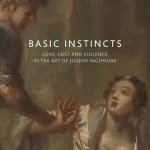
Basic Instincts: Love, Lust and Violence in the Art of Joseph Highmore
Book
Published to coincide with the exhibition at the Foundling Museum in London, this fascinating book...
ClareR (6059 KP) rated The Four Winds in Books
Feb 28, 2021
It’s a period of history that I know little about. I mean, I’ve watched films set in this period where people live on ramshackle farms, or in shanty-type towns, and I knew that it was something to do with the Great Depression. This book describes the side of the story of a family of farmers who lived in the Dust Bowl of Texas.
Elsa lives with her husband, children and his parents on a farm in Texas. Two children later and with the farm failing, Elsa’s husband leaves them to pursue a better life - on his own. Elsa struggles on with her in-laws and children, determined to give Loreda and Ant (her children) a home where they feel loved. But when Ant nearly dies from dust pneumonia, and the farm fails completely, they make plans to leave for California. Elsa reluctantly leaves her in-laws behind (they refuse to leave their farm), because it’s the only way to save Ant.
California isn’t the promised land of milk and honey. They arrive with little money, nowhere to stay, and Californians don’t want to help them. In fact they believe ‘Okeys’ are feckless, lazy, dirty; they refuse to house or employ them. Elsa’s only choice is to live in a tent in an encampment where poverty and typhoid are rife.
I admired Elsa’s tenacity - she works tirelessly for little money to feed her children. It’s a story of one woman’s survival and her need to protect her family.
I didn’t know anything about the Dust Bowl before I read this. I’d heard the term, but I didn’t know about the dust storms, animals dying after being filled up with dust, and people dying from dust pneumonia. This sounds like an exaggerated story, doesn’t it? But it’s not. None of this was unusual.
The Four Winds is a hard, yet compelling read. This is only the third Kristin Hannah book I’ve read, and it won’t be my last!
Many thanks to St Martin’s Press for my e-copy.
Andrew Kennedy (199 KP) rated The Conjuring 2 (2016) in Movies
Jun 6, 2021
In England a single mother of four is struggling to make ends meets for her family and then one of the daughters,Janet, starts to experience waking downstairs. It isn't long till it is established its a haunting. Various experts and skeptics alike decend on to the family home till during a TV interview Janet speaks as that of former home resident Bill Watkins.
This eventually brings in the church who contact the Warren's for them to assess whether its a hoax or not.
It is definitely presented as real. Lorraine is still troubled by her premonition of Eds demise but they seem to bond with the family.
Plenty of twists and scares and huge amount of atmosphere make this, dare I say it, a more enjoyable watch then the first Conjuring.
Of course this is based on a real life situation and all the players who were involved are represented in the film. However, the Warren's involvement was nowhere near as much as portrayed here (claims that no one even knew who Ed Warren was). In the end some believe its Britain's Amityville or a clever hoax by some teen girls, the film doesn't try to get into though there is a scene which eludes to the fact it could have been a hoax.
Patrick Wilson and Vera Farmiga are back as the Warren's and are both very good in there roles. It is however young Madison Wolfe as Janet who steals the show from confused, scared little girl to snarling demon. The TV interview scene she portrays the point where Janet is possessed superbly.
Special mention to Simon Mcburney for his portrayal of Maurice Grossae.
James Wan is a man who knows how to
In the end I give The Conjuring 2 top marks. A film I enjoyed immensely and actually preferred this to the original.
Heather Cranmer (2721 KP) created a post
Dec 9, 2022
Melanie Caldicott (6 KP) rated 10 Minutes 38 Seconds in This Strange World in Books
Apr 29, 2021
I saw this book reviewed on The Sky Arts Book Club and Shafak was interviewed and I think I fell a little in love. Shafak is a beautiful human being who is currently self-exiled from Turkey to the content of her novels being subject to investigation as part of a legal movement in which writers are frequently prosecuted. A passionate storyteller, who writes openly about human rights, her protagonists are often the fallen, forgotten and marginalised. Needless to say I have been looking forward to reading this ever since.
10 Minutes 38 Seconds in this Strange World is a novel about a murdered street walker, Tequila Leila and the last moments of brain activity that is said to occur after the heart has stopped beating. The memories of her life flood back, often related to taste and smell and we start to learn about the story of her life.
Central to her memories and providing a backbone to her life were The Five, – five people with which she formed close, integral friendships and in the absence of her blood relatives, are Leila’s “family”.
The book is structured around three parts – the first, The Mind telling the stories of her post-mortem memories, the second, The Body about how she was murdered and the impact it has on The Five, and finally, The Soul which is a touching finale in which The Five determine to give Leila the send-off she deserves.
Shafak is such a clever storyteller and is able to illuminate aspects of humanity which is often avoided or ignored, which make us feel uncomfortable, and yet her tenderness and compassion shine through the portrayal of all her characters enabling the reader to walk a mile in the shoes of those who are often forgotten.
For a book centred around death, an issue that rarely sits comfortably with human beings, 10 Minutes 38 Seconds in this Strange World confronts it without fear. She skilfully takes a sex worker’s body which is disregarded in its anonymity by those that are responsible for sweeping up the detritus of the Istanbul streets, and reveals a story of a life, full of tragedy, joy and love.
I love how Elif Shafak takes the stories of all of The Five and transforms the insignificant to the significant through the love they have for Leila and each other. In a society which elevates the rich and famous and makes their voices the loudest and most significant in the world, I loved the truth which was affirmed in this book about what a life of substance really means.

Battery : Battery Power Battery Charge Battery Life Battery Saver - The All in 1 Battery App Battery Magic Elite!
Business and Utilities
App
The Battery Saver,Use,Monitor and Battery Pwr app with more Data & Stats than basic Battery Info !...
